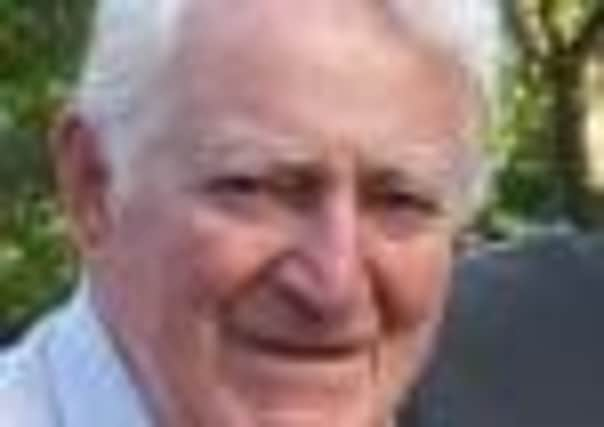Obituary: Brendan McKeown OBE, petroleum engineer


Petroleum engineer Brendan McKeown was written into oil industry folklore as much for his judicious use of a pickle jar as for his skills as a drilling engineer.
The jar was the unlikely receptacle he chose to mark a seminal moment in Scotland’s industrial history: the transportation ashore of the UK’s first North Sea oil.
Advertisement
Hide AdAdvertisement
Hide AdThe discovery was kept secret and McKeown, a veteran of the Kuwaiti and Iranian oil fields, regarded it privately as “the North Sea bubble”.
Though it is true the South Montrose discovery could not be described as a huge commercial success, it paved the way for today’s multi-billion pound energy industry and became McKeown’s footnote to 20th century history.
The son of a respected maths teacher, he was born and raised in Belfast where he attended St Malachy’s College before graduating with a BSc in civil engineering from the city’s Queen’s University in 1946.
His first job was as a civil engineer in the Ministry of Health at Stormont but by 1949 he had joined the Kuwait Oil Company (KOC) as an assistant civil engineer and was involved in various major infrastructure projects, including power stations, jetties and harbour works.
In 1955, he returned to the UK to take a post-graduate diploma in oil technology at Imperial College, London. However, he remained with the KOC and back in Kuwait he was attached to the company’s drilling office.
When the drilling engineer he was covering for failed to return from leave, he got the chance to move from building swimming pools and clubhouses for the compound to learning the nitty gritty of the oil business from the drill floor.
In 1960, he became a trainee driller and within six months had his own crew. He rose through the ranks to senior drilling engineer and then superintendent of operations and worked alongside famous oilfield firefighter Red Adair.
Growing tired of the desert, he moved to Tehran in 1965 as operations manager for the Iranian Offshore Petroleum Company and spent two years there before joining Amoco.
Advertisement
Hide AdAdvertisement
Hide AdBy the late 1960s, the race was on to find black gold under the North Sea. McKeown, who was living near Norwich, was the company’s drilling superintendent and commuted to Aberdeen at least a couple of times a week. When Amoco struck oil in the UK sector for the first time, the irony was that it was with a BP rig and crew.
McKeown and his team had been running drill stem tests in the Montrose field, (later known as the Arbroath field) east of Aberdeen, but the reports containing the results were known only to a handful of people.
Those on the rig floor were unaware of the significance of their work and, as part of their precautions, the data was passed to the favoured few via coded radio messages based on American high school football teams. Copies of the vital test reports were also filed in a safe in Aberdeen.
One night, in the middle of September 1969, McKeown was roused from his bed when the discovery in well 28/18-1 was imminent.
He caught a 7am helicopter out to the rig where the momentous find was subsequently made.
Borrowing a pickle jar from the galley, he brought a sample ashore, delivering it onto his boss’s desk where a small quantity was poured into a glass ashtray and set alight, confirming it was indeed oil.
McKeown later admitted he was “over the moon” but sceptical, and no big announcement was made at the time. As a result, it was several years before Amoco was able to take the credit for finding the first oil.
Meanwhile, McKeown went on to become operations manager at the Bacton gas terminal and division operations manager for Amoco UK gas fields.
Advertisement
Hide AdAdvertisement
Hide AdDuring his career, he was proud to host a visit by Princess Anne, who was just 18 and on her first official engagement, when she made a trip to Amoco’s Leman field.
In 1985, he was named Great Yarmouth’s first Oil Baron of the Year by the town’s Society of Petroleum Engineers, of which he was a member. And he was made an OBE, for services to the oil industry, in the Queen’s Birthday Honours in 1986, the year he retired. He was also an associate member of the Institution of Civil Engineers, a founder of Lions International in Wroxham, in the Norfolk Broads, where he lived for 45 years, a keen golfer and true family man. He and his wife Sue married in Ballymena in 1951 and celebrated their 60th wedding anniversary in September.
He is survived by Sue, their children Connie, John and Martin and six grandchildren.
ALISON SHAW